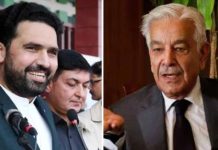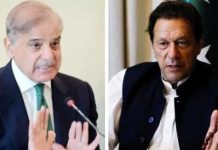ISLAMABAD, OCT 3: /DNA/ – The weaponization of victimhood is a growing global concern, blurring the line between genuine human rights advocacy and the exploitation of narratives for hidden agendas. This challenge is particularly grave in Pakistan, where some activists are alleged to have ties with militant groups, mirroring their behavior and actions. Pakistan must reclaim the intellectual and strategic space from pseudo-human rights advocates misusing the “victimhood card.” These views were expressed at a discussion organized by the Institute of Regional Studies (IRS), Islamabad.
Laurie A. Watkins, a U.S.-based security policy expert, noted that terrorist groups, political activists, anarchist networks, and their supporters increasingly leverage victimhood narratives to delegitimize states and shield extremists from accountability. She highlighted the attempts of manipulation of the Baloch Yakjehti Committee by the Balochistan Liberation Army (BLA) and the selective grievance politics of the Pashtun Tahafuz Movement (PTM), which overlooks terrorist atrocities. Watkins emphasized that reframing extremist violence as victimhood distorts reality, a distortion amplified by global information networks. With regard to Pak-US ties, she noted a shift in Washington’s view of Pakistan, with growing recognition of its strategic, economic, and counterterrorism roles.
Amb Asif Ali Khan Durrani, former Pakistan Special Representative for Afghanistan, observed that the BLA has moved beyond traditional insurgency and now uses digital platforms like Telegram and X to spread high-quality propaganda—ranging from multilingual revolutionary songs to videos of attacks on military bases. He warned that while the BLA portrays itself as a victim of economic exploitation and repression, the real victims remain the local Baloch population exploited by militant groups. He stressed the need to address root causes through economic inclusion, political mainstreaming, and dismantling the digital ecosystem that sustains terrorist organizations.
Dr. Murat Aslan, faculty at Hasan Kalyoncu University, Turkey, argued that the misuse of victimhood narratives by activists poses a national security risk. He called for a comprehensive government–provincial response supported by public awareness campaigns.
Ms. Saba Aslam, Founder and Executive Director of the Islamabad Institute of Conflict Resolution (IICR), warned that Pakistan faces deliberate narrative warfare, where extremist groups project themselves as victims and the state as the aggressor. She emphasized the importance of youth awareness initiatives, international scholarships on counterterrorism, and sustained diplomatic engagement to counter this threat.
Mr. Abdullah Khan, Managing Director of the Pakistan Institute of Conflict and Security Studies (PICSS), cited global precedents where charities and advocacy groups later emerged as fronts for terrorism or separatism. To deal with the emerging weaponization of victimhood by the terrorist groups, he proposed a three-pronged approach: mandatory registration of such entities, compulsory foreign funding disclosure, and regular third-party audits.
Mr. Waqar Khan, Defence Analyst, stated that Pakistan faces a dual challenge of terrorist groups with external sponsorship and the manipulation of narratives through social and digital media. To counter this, Pakistan needs a clear policy leveraging youth engagement and social media to shape narratives and resist the exploitation of victimhood by terrorist groups and their supporters online, he added.
Ms. Sadia Sattar, the founder of Pak-Bangla Connect, emphasized the need for a robust policy strategy to counter the digital ecosystem of terrorist organizations, which disseminates distorted narratives, especially concerning Pakistan, among young people.

















